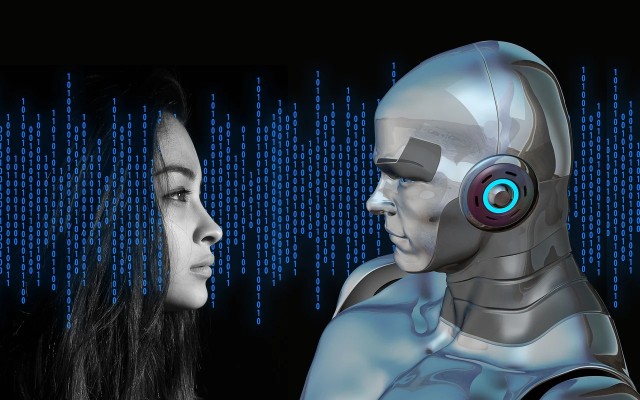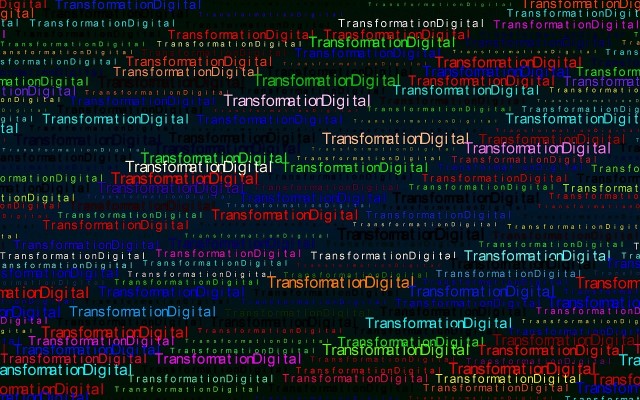Why will AI never replace humans? No doubt Artificial Intelligence (AI) has made remarkable advancements in recent years. AI systems are now capable of performing tasks that were once thought to be solely within the domain of human intelligence. From playing complex games like chess and go to generating natural language, AI has demonstrated impressive capabilities.
However, the question remains – can AI ever truly replace human creativity and intuition? Many experts believe that there are certain aspects of the human mind that AI will never be able to replicate, at least not in the foreseeable future.
In this blog post, we will explore the reasons why AI will never fully replace humans in the realm of creativity and intuition.
READ ALSO: Artificial Intelligence In Digital Transformation: The Top Impacts
Top 7 reasons AI will never replace human creativity and intuition
1. Human Creativity is Inherently Complex
Human creativity is complex. It involves the ability to generate novel and original ideas. It can see the world from different perspectives and solve problems in unique ways. Creativity is not just about generating ideas; it also involves the ability to think outside the box and to synthesize information in novel ways.
AI systems, on the other hand, are typically designed to perform specific tasks based on the data and algorithms they are provided. They may be able to generate new content or solve problems. However, their creativity is often limited to the parameters of their programming. They lack the inherent complexity that characterizes human creativity.
READ ALSO: 5 Artificial Intelligence Opportunities for College Students
2. Intuition and Emotional Intelligence
Intuition and emotional intelligence are essential components of human decision-making and problem-solving. These qualities go beyond the rational, logical processes that AI systems are typically designed to perform. Intuition allows us to make decisions based on our experience, instinct, and a deep understanding of the context at hand.
Emotional intelligence, on the other hand, enables us to perceive, understand, and manage emotions, both our own and those of others.
AI systems can be trained to recognize and respond to emotional cues. However, their understanding of emotion is often limited to the data they have been exposed to. They lack the depth of emotional understanding. Hence, AI will never replace humans.
READ ALSO: 5 Industries AI Will Disrupt in the Coming Years
3. Adaptability and Flexibility
Humans are inherently adaptable and flexible, able to adjust to changing circumstances and to learn and grow throughout their lives. We can draw on our past experiences, our intuition, and our creative problem-solving skills to navigate new and unfamiliar situations.
AI systems, on the other hand, are often designed to perform predefined tasks. While they can be trained to adapt to new situations, their adaptability is often limited by the scope of their programming and the data they have been exposed to.
Moreover, as the world becomes complex, the need for adaptability and flexibility becomes important. Humans can navigate this complexity and uncertainty in ways that AI systems have yet to fully replicate.
4. Contextual Understanding and Nuance
Human intelligence is deeply rooted in our ability to understand context and to navigate the nuances of languages and culture. We can draw on our knowledge, experiences, and intuition to interpret and respond to complex situations in ways that AI systems often struggle with.
For example, the ability to understand and respond to sarcasm, humor, or subtle emotional cues. This is a human trait that AI systems have yet to fully replicate. AI can be trained to recognize and respond to certain linguistic and social patterns. However, their understanding is often limited to the data they have been exposed to.
In contrast, humans can draw on a lifetime of experiences, cultural knowledge, and intuitive understanding. This will help to navigate these complex social and linguistic barriers with ease. This contextual understanding and nuance is a crucial aspect of human intelligence that AI will likely struggle to replicate fully.
READ ALSO: How AI Technology is Reshaping the Workforce
5. Originality and Imagination
One of the most unique features of human intelligence is our ability to generate original, novel ideas and engage in imaginative and speculative thinking. We can envision new possibilities, explore alternative perspectives, and push the boundaries of what is known.
AI systems, on the other hand, are often limited to generating content based on the data they have been trained on. They may combine and recombine information in novel ways. However, their ability to truly generate original, imaginative ideas is often constrained by the limits of their programming and the data they have access to.
Moreover, the act of imagination and creative problem-solving often involves the ability to draw on a vast array of experiences, memories, and associations in ways that are unique to the human mind. This ability to synthesize information and generate new ideas in a truly original way is a hallmark of human intelligence that AI has yet to fully replicate.
6. Subjective Experience and Consciousness
Perhaps one of the most profound aspects of human intelligence is our subjective experience and consciousness. We are not just machines that process information; we have an inner experience of the world. Humans have a sense of self, and an ability to ponder the nature of our existence.
This subjective experience, often referred to as qualia, is a personal and subjective aspect of the human mind. AI systems have yet to replicate that. While AI can be programmed to mimic certain aspects of human behavior and cognition, they do not possess the same depth of subjective experience and self-awareness that is integral to the human condition.
The question of whether AI can ever achieve true consciousness and subjective experience remains a subject of intense debate and philosophical inquiry.
7. Moral and Ethical Reasoning
Humans are not just rational, logical beings; we also possess a deep capacity for moral and ethical reasoning. We can navigate the nuances of right and wrong, and make decisions that are guided by our sense of values and principles.
AI systems, on the other hand, are typically designed to optimize to perform tasks based on predefined rules and algorithms. While they can be programmed to follow certain ethical guidelines, their ability to engage contextual moral reasoning that is characteristic of human intelligence is limited.
Moreover, developing AI systems that can engage in truly autonomous decision-making and moral reasoning raises high ethical concerns. As AI systems become more advanced and powerful, the need to ensure that they are aligned with human values and ethical principles becomes more critical.
READ ALSO: Top 7 Unique Ways A.I Can Improve Customer Service
Conclusion
In conclusion, while AI has demonstrated impressive capabilities in a wide range of domains, there are certain aspects of human intelligence that AI is unlikely to fully replicate in the foreseeable future.
The inherent complexity of human creativity, the role of intuition and emotional intelligence. Also, the adaptability and flexibility of the human mind, the contextual understanding and nuance that characterizes human intelligence. And finally, the capacity for originality and imagination, and the subjective experience and consciousness of the human condition. All these are all facets of human intelligence that reaffirm AI will never fully replace humans.
As AI continues to advance, it will undoubtedly play an important role in a wide range of industries and domains. However, the unique qualities of human intelligence, creativity, and intuition will remain essential and irreplaceable.
By understanding the limitations of AI and the strengths of human intelligence, we can work towards a future where AI and humans collaborate and complement each other. It will help in harnessing the best of both to tackle the challenges and opportunities that lie ahead.







